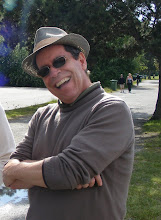Sufi scholar and perennial philosopher Seyyed Hossein Nasr was unable to attend the 1968 Spiritual Summit Conference in person but was able to present a paper in absentia. Responding to the conference theme of "relevance" Nasr presents the paper "The Pertinence of Islam to the Modern World".

On Relevance and Irrelevance
In framing the question of relevance Nasr writes: "Whatever is not fashionable in this whirling pace of superficial change is suddenly declared outmoded and irrelevant, whereas in actuality what is trivial and irrelevant is precisely that world or climate of thought which rejects and ignores the perennial and permanent truths, the truths which have always had meaning for men because they appeal to something permanent in man."
Depleting the Spiritual Significance
Nasr speaks of Islam, and other authentic religions, as a necessary remedy for one of the great maladies of the modern world, namely over-secularization... "a process which is nothing else than depleting things of their spiritual significance". He sees this "depletion" processing through politics and governance, fields of thought and philosophy, the arts, science, and even religion. The irony, for Nasr, is that this apparent pursuit of freedom ultimately leads to the loss of "the only real freedom open to man, the freedom of spiritual deliverance". Integration and Disintegration
Integration and Disintegration
Nasr also speaks of the essential unity of God and of the purpose of religious and spiritual life as "the complete and total integration of man in all his depth and amplitude". He laments the excessive compartmentalization of modern science and education; the fragmentation of community; and the disintegration of personality and sees Islam as a means of healing. With language that conjures up the grace and beauty of Sufi dance Nasr describes the human predicament as being caught in whirling "centrifugal tendencies" which dissipate our souls and energy towards the periphery. The teachings and disciplines of Islam allow the soul to regain the Center.
Nasr and Merton
Seyyed Nasr was in contact with Merton indirectly through mutual friends. He helped to make plans for Merton to visit Iran after Thailand in early 1969. Unfornately, since the Iranian leg of the journey never came to pass, Merton and Nasr did not get to meet in person. Nasr recently wrote the preface to the Fons Vitae publication "Thomas Merton and Sufism: the Untold Story" in which he says: "Let it be said first of all that Merton's knowledge of Sufism was authentic and genuine... What would have happened if Merton had been able to come to Persia and to continue his study of Sufism, only Heaven knows. In any case that was not to be. Perhaps he would have written major works of Sufism in its relation to Christian spirituality. But even what he did write and the thoughts he did express to friends reveal the inner sympatheia he had towards the Islamic spiritual universe."
it be said first of all that Merton's knowledge of Sufism was authentic and genuine... What would have happened if Merton had been able to come to Persia and to continue his study of Sufism, only Heaven knows. In any case that was not to be. Perhaps he would have written major works of Sufism in its relation to Christian spirituality. But even what he did write and the thoughts he did express to friends reveal the inner sympatheia he had towards the Islamic spiritual universe."
Peace be with you... Rob
"Peace in the human order results from peace with God and also with nature." Seyyed Hossein Nasr




No comments:
Post a Comment